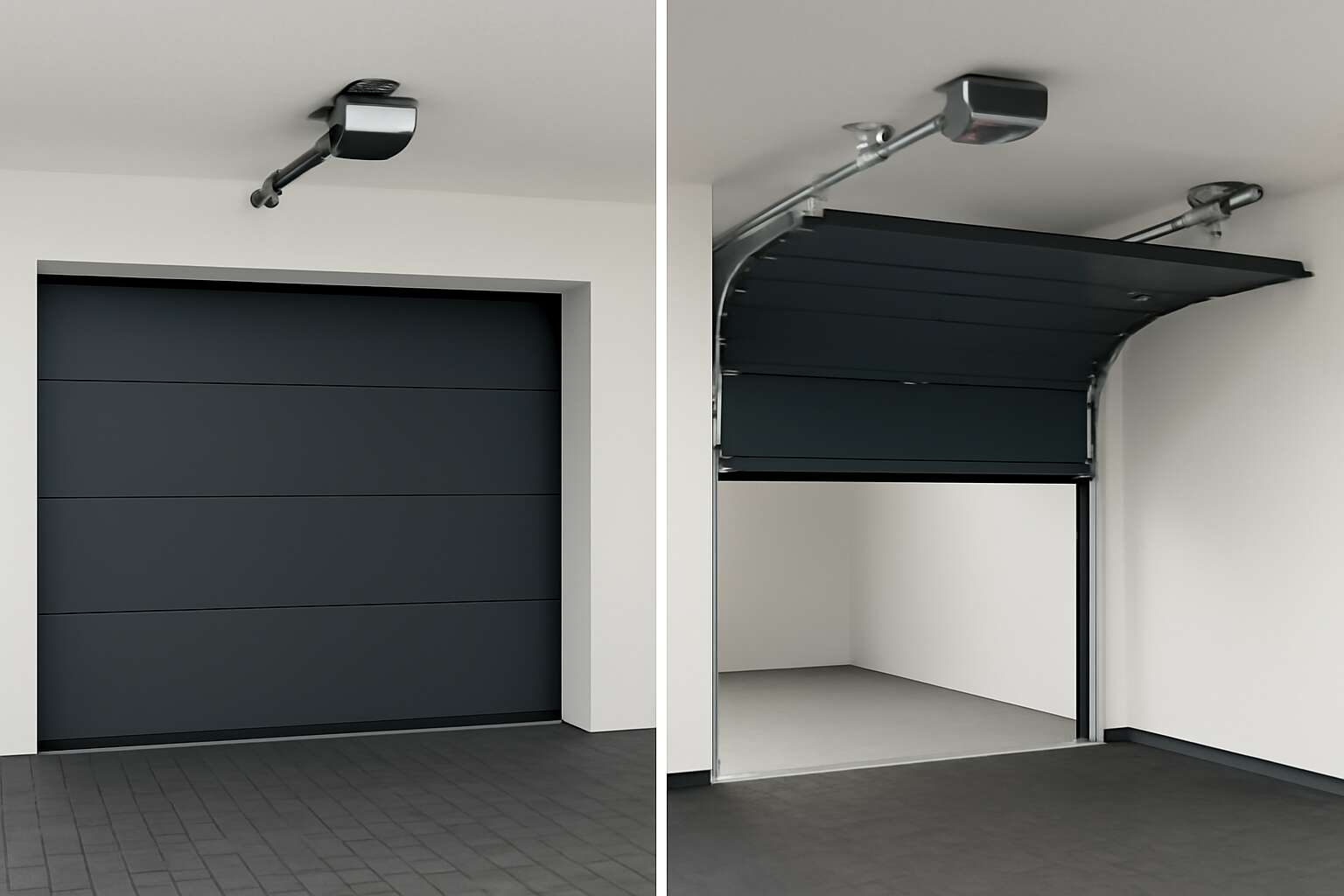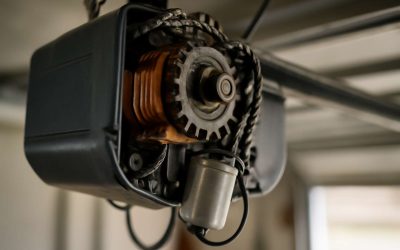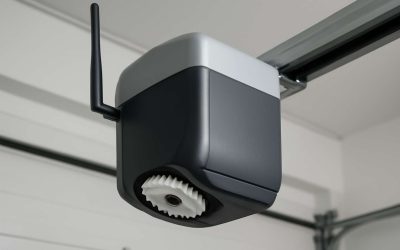Understanding Garage Door Motors
Types of Motor Drive Systems – Array
Understanding garage door motor types is crucial when selecting the perfect system for your home. These motors aren’t just power sources; they’re the heartbeat of your garage’s security and convenience. Among the various garage door motor types, the most common are chain drive, belt drive, and screw drive systems. Each offers a distinct blend of performance, noise level, and durability.
Chain drive motors are renowned for their strength but are often noisier — ideal for garages where noise isn’t a concern. Belt drive systems, on the other hand, provide whisper-quiet operation, making them perfect for homes with bedrooms nearby. Screw drive motors stand out with their simple design and low maintenance needs, offering a reliable middle ground.
Choosing the right garage door motor type depends on your specific needs—quiet operation, durability, or budget. Understanding these differences ensures you invest in a system that lasts and performs flawlessly.
Motor Power and Compatibility – Array
In the symphony of home security and convenience, the power behind your garage door is more than mere mechanics—it’s a conduit of trust and efficiency. The subtle dance of motors, each with its own character and cadence, plays a vital role in how seamlessly your garage opens and closes. When exploring garage door motor types, understanding their power and compatibility becomes paramount, ensuring the chosen system harmonises perfectly with your specific needs.
The motor’s power capacity determines how effortlessly it can handle the weight and size of your garage door. For larger, heavier doors, a robust motor—typically rated at 1.5 HP or higher—is essential to prevent strain and prolong lifespan. Conversely, lighter doors may function smoothly with a smaller, more energy-efficient motor, saving on electricity and wear.
Compatibility is equally critical. Your garage door motor must align with the door’s weight, size, and frequency of use. An ill-suited motor risks rapid wear or even failure—turning what should be a convenience into a costly inconvenience. To simplify your choice, consider these factors:
- The door’s weight and dimensions – heavier doors demand more powerful motors.
- Frequency of use – high-traffic garages benefit from durable, high-capacity systems.
- Existing infrastructure – motor compatibility with your garage’s electrical system ensures seamless installation.
Matching garage door motor types with these parameters creates a symphony of performance—each element working harmoniously to offer reliability, longevity, and peace of mind. It’s not just about power; it’s about forging a connection between your home’s heartbeat and the silent force that keeps it secure.
Common Garage Door Motor Technologies
AC vs. DC Motors – Array
Garage door motor types have evolved significantly, offering homeowners a choice between two dominant technologies: AC and DC motors. While both serve the same fundamental purpose—opening and closing your garage door—their mechanisms and performance characteristics differ markedly. Understanding these differences can help you select the right garage door motor type for your needs.
AC motors are known for their durability and simplicity. They operate on alternating current, providing consistent power but often producing more noise during operation. These motors tend to be more affordable and reliable over time, making them a popular choice for many households.
DC motors, on the other hand, use direct current, allowing for smoother, quieter operation. They often include smart features such as soft-start and soft-stop functions, which extend the lifespan of your garage door system. Because of their advanced technology, DC motors typically come with higher price tags but deliver enhanced convenience and efficiency.
- Cost-effectiveness
- Noise levels
- Operational smoothness
Choosing between these garage door motor types depends on your priorities—whether it’s budget, noise reduction, or longevity. Both AC and DC motors have their place, but knowing their unique qualities helps ensure you make an informed decision.
Smart Garage Door Openers – Array
In the shadowed realm of modern garage door motor types, the evolution of smart technology has cast a new spell of convenience and control. Today’s garage door openers are no longer mere machines; they are interconnected sentinels, whispering commands through wireless networks and responding with silent, almost supernatural precision. This digital renaissance has birthed a new breed of garage door motor technologies—each promising a blend of sophistication and reliability that once belonged only to the realm of fantasy.
Among these innovations, smart garage door openers stand at the forefront, harnessing Wi-Fi and Bluetooth connectivity to grant homeowners unprecedented mastery over their gateways. Features such as remote monitoring, real-time alerts, and integrated security sensors elevate the humble garage door into a fortress of modern living. These systems often incorporate advanced technology like encrypted communication protocols, ensuring that only trusted devices can command your door’s every move.
Within this spectral landscape, the choice of garage door motor types becomes a matter of both preference and principle. Some machines boast whisper-quiet operation, thanks to brushless motors and soft-start mechanisms, while others focus on durability and ease of maintenance. For those seeking the perfect harmony of form and function, here is an outline of the key features that define the best smart garage door openers:
- Seamless integration with home automation systems
- User-friendly mobile applications
- Enhanced safety features like obstacle detection
As the darkness of tradition recedes, these modern marvels offer a glimpse into a future where convenience, security, and ingenuity intertwine—a testament to how far garage door motor types have come in the ceaseless march of technological progress. Embrace the shadows; let your garage be a portal to the future, cloaked in the silent power of smart garage door openers.
Factors to Consider When Choosing a Garage Door Motor
Garage Door Size and Weight – Impact on motor selection
The harmony between a garage door’s grandeur and the motor that breathes life into it is often overlooked—yet, it is the unseen force that can make or break the day’s rhythm. When selecting the right garage door motor types, understanding the size and weight of your garage door is paramount. An oversized or heavy door demands a motor with sufficient power to operate smoothly without strain, ensuring longevity and silent performance. Conversely, a lighter door allows for a more modest motor, conserving energy and reducing wear and tear.
In essence, the key lies in matching the motor’s capacity to the door’s dimensions. Consider the following when choosing a garage door motor:
- Weight capacity—ensure the motor can handle the maximum weight of the door.
- Size compatibility—larger doors require motors with higher horsepower ratings.
- Frequency of use—more frequent operation calls for a durable, high-performance motor.
Remember, selecting the right garage door motor types isn’t just about power; it’s about harmony, endurance, and the quiet poetry of a well-functioning home. The right match transforms daily routines into seamless rituals, echoing the timeless pursuit of perfection that defines the American Dream.
Frequency of Use – Durability and motor lifespan considerations
In the symphony of daily life, few movements are as seamless yet as dependent on subtle endurance as the rhythm of your garage door. When selecting the appropriate garage door motor types, one factor often overlooked is the frequency of use. This element isn’t merely about convenience; it’s a testament to the motor’s durability and lifespan, acting as the silent guardian of your routine. A motor subjected to constant demands must possess resilience, otherwise, it risks premature fatigue and failure—disrupting the harmony of your home’s functioning.
Consider, for instance, the oscillation between occasional weekend use and relentless daily operation. For high-frequency scenarios, a robust, high-performance garage door motor type becomes essential, ensuring smooth, silent operation without sacrificing longevity. Conversely, infrequent use allows for a more modest motor, conserving energy and reducing wear—but only if it is chosen with exacting precision. The key lies in understanding your specific needs, where the right motor type acts as both a protector and a partner in daily life.
To illustrate, some homeowners opt for a belt drive system for its durability and quiet performance in high-use environments, while others prefer chain drive motors for their resilience under frequent operation. When evaluating garage door motor types, it’s vital to weigh these considerations carefully, aligning your lifestyle with the motor’s capacity for endurance. After all, a well-chosen motor doesn’t just open and close a door—it sustains a sanctuary of stability and quietude amid the chaos of modern living.
Noise Levels – Silent operation options
In a world increasingly obsessed with tranquillity, the noise level of a garage door motor can make or break the serenity of your home. Surprisingly, many homeowners overlook this subtle yet significant detail when selecting the right garage door motor types. After all, what’s more disruptive than a clattering garage door at dawn or late at night? Opting for silent operation options isn’t merely about comfort; it’s about preserving your social grace and inner peace.
When exploring your options, consider motors designed with noise minimisation in mind. These typically feature belt drive systems, renowned for their whisper-quiet functionality, ideal for homes with bedrooms nearby or for those who simply cherish a peaceful environment. For a touch of sophistication, some garage door motor types incorporate advanced soundproofing measures, ensuring the hum remains subtle and unobtrusive. The choice of motor can transform a mundane home feature into an elegant, unobtrusive element that quietly supports your daily routine.
- Assess the noise level specifications of various garage door motor types.
- Prioritise models with belt drive systems for quiet operation.
- Consider smart features that optimise operation to reduce sound emissions.
Installation and Maintenance – Ease of setup and servicing
Choosing the right garage door motor types isn’t simply a matter of power and compatibility; ease of installation and ongoing maintenance often determine whether a system will stand the test of time or become a persistent source of frustration. It’s astonishing how many overlook this crucial factor—after all, a complex setup can turn into a nightmare if not properly planned.
The process should be seamless, with clear instructions and straightforward wiring. Maintenance, on the other hand, demands accessibility—components that are easy to reach and replace can save hours of labour and frustration. Consider motors with modular designs or quick-release features, which simplify routine inspections and repairs.
In essence, selecting garage door motor types that prioritise user-friendly installation and maintenance can transform a mundane upgrade into a long-lasting, reliable solution. After all, what’s more valuable than peace of mind when it’s time to service your home’s most utilised feature?
Advantages and Disadvantages of Different Motor Types
Chain Drive Motors – Pros and cons
In the silent, relentless march of modern convenience, the choice of garage door motor types becomes more than mere machinery—it’s about aligning with the rhythm of our lives. Chain drive motors, a staple in many homes, offer robustness but at a cost. Their durability is undeniable, yet their operation often carries a clatter that can disturb the calm of a quiet neighbourhood. The pros are clear: these motors are generally cost-effective and can handle heavier garage doors with ease. However, the cons lie in their noise levels and the need for more frequent maintenance.
For those seeking a balance between strength and serenity, belt drive motors present an intriguing alternative. They operate almost whisper-quiet, transforming the garage into a sanctuary rather than a noisy battleground. But, they tend to be pricier and may require more careful installation. Ultimately, understanding the advantages and disadvantages of each garage door motor type reveals that no one solution fits all—each has its own story, its own moral dilemma in balancing power, cost, and peace.
Belt Drive Motors – Advantages and limitations
Belt drive motors are the whisperers of the garage door motor types universe. If serenity is your priority, these nifty devices operate almost silently, transforming your garage from an echo chamber into a calm retreat. Their smooth, vibration-free operation is especially appreciated in neighbourhoods that value peace over power. But don’t be lulled into thinking they’re only for the faint-hearted—these motors are robust and can handle medium to heavy garage doors with aplomb.
One significant advantage of belt drive motors is their longevity. Thanks to fewer moving parts and less wear and tear, they tend to require less maintenance over time. However, this tranquillity does come at a cost; belt drive systems generally have a higher upfront price compared to their chain drive counterparts. Installation can also be a bit more meticulous, demanding precision to ensure optimal performance. Still, for those seeking a harmonious blend of strength and serenity, belt drive motors are often the ideal choice in the realm of garage door motor types.
Screw Drive Motors – Strengths and potential issues
Screw drive motors, often seen as the stalwart artisans of garage door motor types, bring a robust strength that’s hard to rival. Their design, which employs a threaded steel screw to propel the door, makes them remarkably reliable—perfect for those seeking a dependable, long-lasting solution. Their simplicity means fewer parts to falter, translating into less maintenance and a quieter operation than traditional chain systems. Yet, they are not without their quirks.
One notable strength of screw drive motors is their ability to handle heavier garage doors with ease, making them an excellent choice for large or frequently used doors. However, potential issues can arise in colder climates, where the screw mechanism might face increased resistance due to ice or lubrication problems. This could lead to slower operation or increased wear over time. For those considering this type of garage door motor, it’s wise to weigh the durability against environmental factors.
- Strength and durability for heavy or frequently used garage doors.
- Less maintenance compared to chain drive systems.
- Quieter operation than traditional chain-driven motors.
Nevertheless, the installation process demands precision, and initial costs tend to be higher than some other options. Despite these challenges, screw drive motors remain a favourite among homeowners who prioritise resilience and steadfast performance in their garage’s heart of mechanical motion.
Direct Drive and Other Innovative Technologies – Emerging motor types and their benefits
When it comes to garage door motor types, innovation is not just a buzzword—it’s a game-changer. Enter the direct drive system, which eschews the traditional motor-and-gear arrangement for a sleek, beltless design that’s as quiet as a whisper. Unlike conventional models, this technology minimises moving parts, reducing wear and tear while boosting reliability. With fewer components, maintenance becomes a cakewalk, much appreciated by homeowners who like their garage doors to operate smoothly without frequent tinkering.
Emerging motor types, such as smart garage door openers, bring a new level of convenience and security. These systems integrate seamlessly with smartphones, enabling remote operation and real-time diagnostics. Plus, they often feature energy-efficient motors that consume less power while delivering impressive performance. For heavy or frequently used garage doors, these innovations offer durability and ease of use—making them a compelling choice in today’s fast-paced world.
- Enhanced noise reduction thanks to advanced motor technology.
- Improved compatibility with smart home systems for effortless integration.
- Increased energy efficiency, saving on electricity bills over time.
Popular Brands and Models
Leading Manufacturers – Overview of top brands
In the sprawling universe of garage door motor types, certain brands have ascended to almost mythic status—beloved not just for their reliability, but for their unassailable innovation. Leading manufacturers like Chamberlain, LiftMaster, and Genie have become household names, synonymous with quality and durability. These brands offer an array of models designed to cater to everything from quaint suburban garages to expansive commercial setups.
When delving into popular brands and models, it’s worth noting that each has carved out its niche, often distinguished by technological prowess and customer trust. For instance, Chamberlain’s flagship models boast seamless smart connectivity, making them a favourite among tech aficionados. Similarly, Genie’s belt drive systems are renowned for whisper-quiet operation, a feature that elevates the user experience.
- Chamberlain: Known for their innovative smart garage door openers and robust motor options.
- LiftMaster: A leader in commercial-grade garage door motors with a reputation for longevity.
- Genie: Celebrated for their belt drive models that marry quiet operation with enduring performance.
This curated selection of garage door motor types from leading brands ensures that whether your priority is silent operation, durability, or smart connectivity, there’s a perfect fit waiting to be discovered. After all, choosing the right motor isn’t merely about mechanics—it’s about aligning your garage’s personality with the best in the business.
Popular Models by Motor Type – Highlights of specific models suited for different needs
When exploring the vast realm of garage door motor types, certain models stand out for their exceptional performance and tailored features. For homes seeking seamless smart connectivity, Chamberlain’s MyQ-enabled garage door openers are a game-changer, offering effortless control via smartphone. Meanwhile, commercial setups often rely on the formidable LiftMaster HD series, renowned for their durability and power, handling heavy-duty garage doors with ease.
For those prioritising whisper-quiet operation, Genie’s belt drive models shine brightly. The Genie SilentMax series, for instance, combines smooth, silent performance with robust reliability, making them ideal for homes where tranquillity is prized. Additionally, for specialised needs, some garage door motor types incorporate innovative direct drive technology, providing a sleek, motor-in-the-centre design that reduces noise and enhances lifespan.
- Chamberlain’s smart garage door openers for tech enthusiasts.
- LiftMaster’s commercial-grade motors for heavy-duty applications.
- Genie’s belt drive models for quiet, reliable operation.
Each of these models exemplifies how selecting the right garage door motor type can transform everyday convenience into an experience of effortless sophistication. Whether you need strength, silence, or smart features, there’s a model perfectly suited for your unique requirements in the world of garage door motor types.




0 Comments